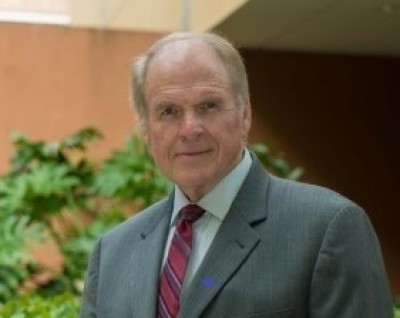Accurate information in an age of disinformation: Hubris collisions (pt. 1)
Matter and anti-matter collided in the White House press briefing room April 24, resulting in the annihilation of information much needed by the public.
President Donald Trump, after a twenty-two-minute session, walked out of the briefing without answering any questions from the mix of preening celebrity reporters and sincere journalists.

Many would agree with Donald Trump’s assertion that he is a “war-time” president. The pandemic is a matter of life and death. Rarely have we needed trustworthy information more. However, what is happening in the White House press room often reveals that we are also living in the age of disinformation and misinformation (disinformation is intentional, designed to mislead; misinformation is primarily unintentional confusion).
When the hubris of show-biz news gatherers crashes into the hubristic presidency matter and anti-matter careen into one another. What is obliterated is the information we the people need so urgently.
So last April 24, the White House news managers wanted to move a pool reporter so that a CNN correspondent could be sent to the back of the room. The pool reporter refused, defying the White House press staff.
President Trump entered an already tense atmosphere. “Gotcha”-pursuing reporters caustically poked at the president about his remark allegedly encouraging people to ingest disinfectants (Trump said the remark was sarcasm).
Trump walked out.
Left hanging in the void were factory laborers, construction workers, small business owners, truck drivers, barbers, pastors, restaurant staffs, meat packers, plumbers, bakers, moms and dads and children in quarantine, and all the rest of us.
Droplets of rumor, imagination and distortion began to drip into the information void. They brewed up a potful of disinformation.
Neither the “Gotcha”-pursuing press nor the president who walked out served us well. When the hubristic opposites thud, we the people are the losers.
But there’s another hard fact, one I learned as a young man helping handle media regarding certain issues in the Nixon White House: Once a journalist feels the exhilaration of challenging a president to his face, winning the adulation of peers and bosses, hubris sets in. The new — often unconscious — goal becomes that of maintaining the maverick persona and admiration of fellow journalists.
Ron Nessen had a distinguished career as a Washington correspondent for NBC. During that period, I was director of communications for a White House task force led by Dr. George Shultz, at that time Secretary of Labor, and Nixon’s Attorney General, John Mitchell.
Several other members of the president’s Cabinet were also on the task force, along with private citizens. They came together at an Atlanta hotel for a strategy meeting. On the day of the conference, Mitchell instructed me to keep the press out of the meeting room and promised media would be briefed after the session.
Nessen was covering the story for NBC and kept asking me to allow him and his camera crew into the room. I asked Mitchell, and the response was what I anticipated: No.
When I emerged from the conference room, I closed the door and stood in front of it. Nessen shoved a microphone in my face and, on camera, demanded that I explain to the American people why the president’s Cabinet was conducting a meeting where the press was not allowed.
I muttered explanations, and my five minutes of network TV fame was as a blubbering government lacky trying to conceal information from the nation.
But two years later I tried not to gloat as Ron Nessen became press secretary for President Gerald Ford. Now, rather than being a news gatherer and reporter, Nessen was on the other side of the desk as a news manager.
Having lived in those conflicting roles I have little confidence that the solution to the contemporary disinformation and misinformation problems will be solved by either the reporters or the information managers.
One doubts that establishment media who believe they must save the nation from Trump will be fair to him. Nor is it likely that combative Trump will cease annoying the mainstream reporters.
Being wedged between those two unyielding rocks can make a person a cynic.
If neither the press nor the president is likely to change their ways and prioritize getting accurate information to the public rather than disinformation and misinformation, what are people to do?
The answer is that If we cannot solve the problem in the White House press room, we must solve it in our dens and living rooms where Goliath-size TV screens fill the space with distortions of fact.
The Apostle Paul writes in 2 Timothy 4:4 that the time will come when people “will not endure sound doctrine, but according to their own desires, because they have itching ears, they will ... turn their ears away from the truth, and be turned aside to fables.” (NKJ)
The age of disinformation is such a time. “Itching ears” make us vulnerable not only to the “fables” related to “sound doctrine,” but also those spun in public discourse by both news managers and reporters.
We take a deeper look at the “itching ears” problem in Part II.
Wallace Henley is a former pastor, White House and congressional aide, and author of more than 25 books. His newest is Two Men From Babylon: Nebuchadnezzar, Trump, and the Lord of History, published by Thomas Nelson.



























